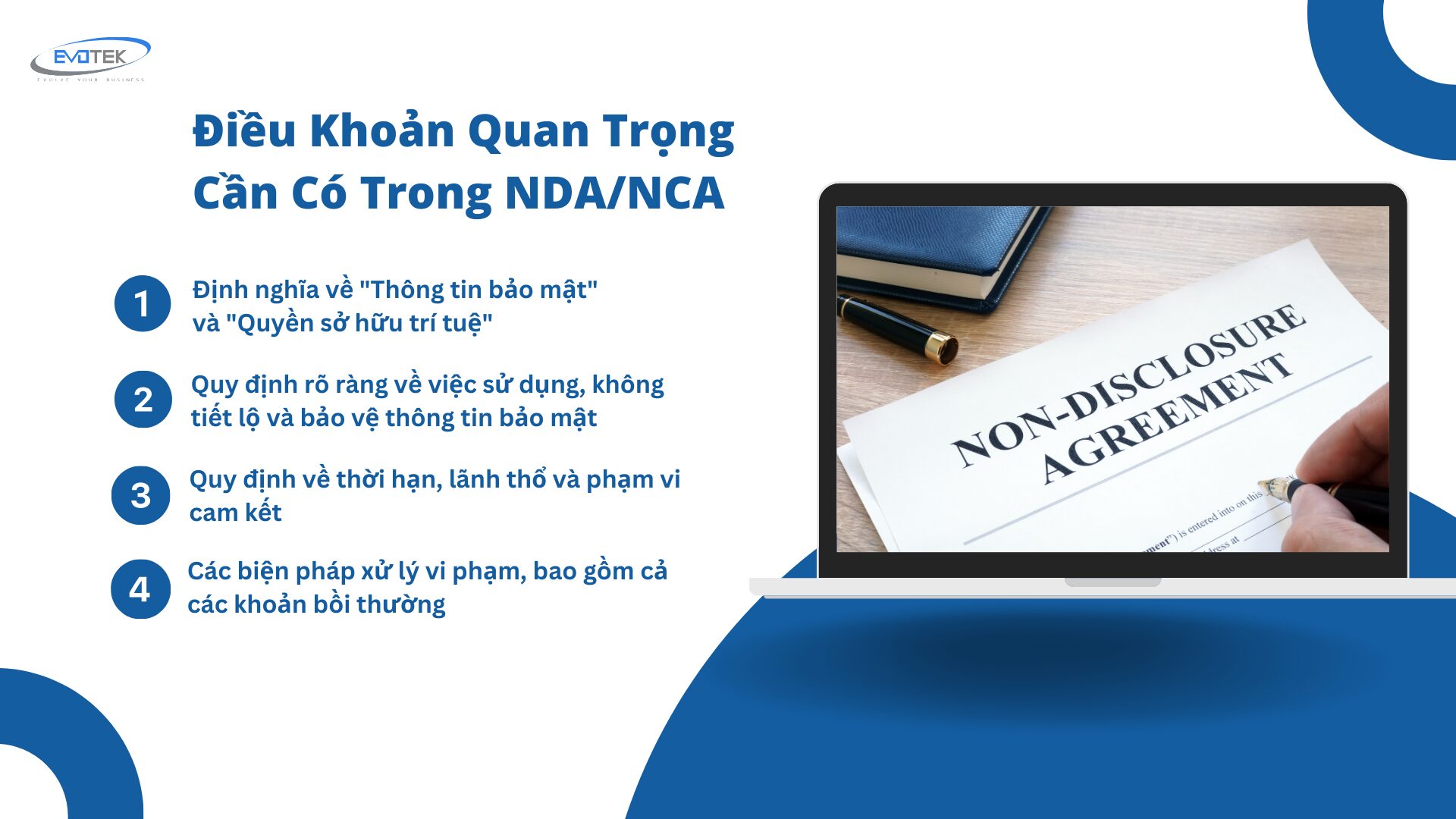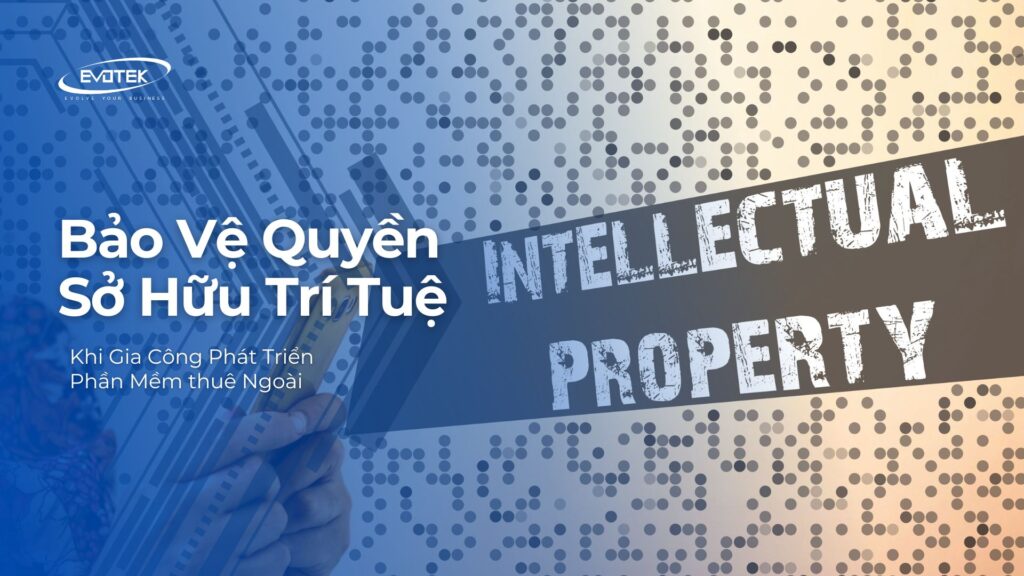According to a 2019 survey by the USPTO, the total GDP from IP-intensive industries amounted to $7.8 trillion. Additionally, in Europe, these industries account for a significant 47% of the total economic output This shows that intellectual property rights (IP) play an extremely important role in the global economy. Especially in the field of software development, the issue of IP protection becomes even more urgent.
The software outsourcing market is projected to grow substantially, with estimates suggesting it could reach $617.69 billion by 2024 and $806.53 billion by 2029. Accordingly, the protection of intellectual property rights (IP) of businesses industry will increase.
Software development companies often tend to outsource to outside units. However, this also means they have to share source code, technology and other sensitive information. Without adequate IP protection measures, there’s a risk of losing ownership over products. This not only leads to financial losses but also impacts a company’s reputation and competitive standing in the market.
In this article, Evotek will show 6 ways to protect intellectual property rights when outsourcing software development.
What are intellectual property rights ?
Intellectual property rights are legal protection for innovative and original products, designs, creative works, trade secrets and other intellectual property. These rights are equivalent in value to the company’s physical assets. They grant creators exclusive usage rights for a specific time frame or permanently.
The importance of Intellectual Property Rights
Intellectual property rights (QHTT) play an extremely important role in the modern economy and society:
- Promoting innovation: IP rights offer legal protection and financial incentives, encouraging individuals and businesses to invest in research and development.
- Fostering artistic and cultural creativity: Copyright laws and other IP regulations support the production of literary, artistic, and cultural works that benefit society.
- Facilitating investment: IP assets can be bought, sold, licensed, and used as collateral, facilitating the flow of capital and resources.
- Driving economic growth: A robust IP system is associated with increased foreign direct investment, technology transfer, and overall economic progress.
- Protecting consumers: Trademarks and other IP tools help consumers identify genuine products and services, combating counterfeiting and fraud.
Given their significant role, it’s crucial to grasp the fundamental concepts of intellectual property in today’s knowledge-driven economy.
Types of intellectual property rights
Intellectual property rights encompass legal protections that safeguard human intellectual creations and encourage creative and innovative endeavors.

- Copyright: Applies to creations in the fields of literature, art and science, software and websites. Includes moral rights (such as the right to name the author) and property rights (such as the right to copy, distribute, and publicly perform).
- Patent: Applicable to inventions that are new, creative and capable of industrial application. The owner of the invention has the exclusive right to use, exploit and allow others to use it for a certain period of time.
- Trademark: Are signs used to distinguish the goods and services of one organization or individual from the goods and services of another organization or individual. The owner of the trademark has exclusive rights to use it in commerce.
- Industrial design: Applied to the external appearance of the product, including lines, colors, and shapes. The owner has the exclusive right to commercially exploit the design for a specified period of time.
5 Strategies for Protecting Intellectual Property Rights When Outsourcing Software Development
1. Execute Non-Disclosure and Non-Compete Agreements
One of the initial steps in outsourcing software development is to sign a Non-Disclosure Agreement (NDA) and a Non-Compete Agreement (NCA) to ensure the confidentiality of information. These contracts bind the outsourcing party to refrain from disclosing or utilizing any sensitive information or company intellectual property.
Key Provisions to Include in NDA/NCA:
- Precise definition of “Confidential Information” and “Intellectual Property Rights”
- Explicit regulations governing the use, non-disclosure, and safeguarding of confidential information
- Guidelines outlining the duration, geographical limits, and extent of the commitment
- Protocols for addressing breaches, including provisions for compensation

A robust commitment to information security through NDA/NCA agreements will guarantee effective protection of the company’s intellectual property rights throughout the project implementation phase.
2. Practice Selective Information Sharing
When collaborating with an outsourcing partner, it’s prudent not to divulge all project-related information and documents indiscriminately. Instead, opt for selective sharing, providing only essential materials required for the outsourcing firm to fulfill its responsibilities.
Types of information to consider sharing include:
- Project requirements and specifications
- Instructional documents and procedural guidelines
- Critical segments of code or design
- Requisite documents and data for software development
By adopting this approach, the company can minimize the exposure of confidential information while still furnishing the outsourcing partner with the necessary resources to accomplish the task.
3. Employ Efficient Project Management Tools
Utilizing project management tools is crucial for overseeing the activities of the outsourcing partner. Platforms like Jira, Trello, or Microsoft Project enable businesses to closely monitor and manage the entire software development lifecycle, from task allocation to document review and final product inspection.
Effective project management tools include:
- Source code management systems such as Git or SVN
- Project management platforms like Jira or Trello
- Access control and authorization tools
- Software for monitoring supplier activities
By leveraging these tools, companies can maintain strict oversight of the development process while enhancing the security of their intellectual property.
4. Secure Project Continuity
Maintaining project continuity is essential for safeguarding intellectual property rights, especially during transitions between outsourcing partners. To prevent information leakage during such transitions, it’s imperative for the company to request all relevant documents, source code, and associated data from the outgoing outsourcing partner at the contract’s conclusion.
Steps to Ensure Project Continuity:
- Request the supplier to furnish comprehensive technical documents, source code, and related data.
- Thoroughly verify the integrity of the documents, source code, and data provided.
- Strategize a seamless transfer of the project to the new supplier.
- Ensure the secure transfer of access rights, accounts, and login credentials.
5. Implement Security Measures During Collaboration
In addition to managing information flow, companies must prioritize security while working with outsourcing partners. This involves implementing measures to prevent attacks or data breaches, such as:
- Utilizing secure communication channels like VPNs and data encryption.
- Monitoring employees and tightly regulating access to systems and documents.
- Conducting regular security audits and risk evaluations.
- Establishing protocols for incident response and data recovery.
Adopting these security measures strengthens a company’s ability to safeguard its intellectual assets against the risk of information leaks during project collaboration.
6. Select a Reliable Software Outsourcing Firm
Before committing to an outsourcing partner, conduct thorough research into their track record and industry experience. Examine their past projects and gather feedback from previous clients.
A reputable outsourcing firm will showcase its reliability through a history of successful projects, positive client testimonials, and any prestigious awards or certifications it has earned.
Trusted by prominent organizations and enterprises, Evotek prioritizes the security of client information in every project. Evotek has achieved ISO 27001 certification for information security. ISO 27001 certification demonstrates a technology partner’s strong cybersecurity management capabilities and compliance with strict laws and regulations. This certification instills confidence in clients, reassuring them of the safety and integrity of their IT projects entrusted to Evotek.

By implementing these six strategies for safeguarding intellectual property rights when collaborating with outsourcing firms, businesses can mitigate the risk of proprietary information loss or leakage while capitalizing on the advantages of outsourcing software development.
Protecting intellectual property is a shared responsibility between the company and the outsourcing service provider. Building a strong and trusting partnership requires both parties to ensure the effective protection of intellectual property rights.
At Evotek, we take a proactive approach to safeguarding our clients’ proprietary intellectual information. Our consultants stand ready to offer support and guidance throughout the software development project implementation process.

 日本語
日本語 한국어
한국어 Tiếng Việt
Tiếng Việt 简体中文
简体中文